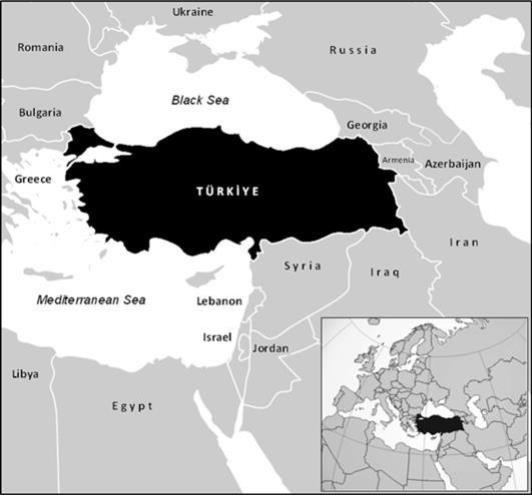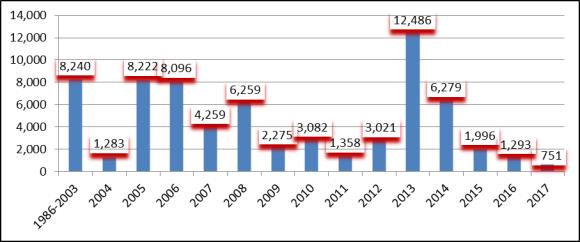The meeting between President Erdoğan and EU Presidents Tusk, Juncker, and Tajani, during the NATO Meeting on May 25, 2017 in Brussels, sowed the seeds for a constructive political dialogue. A calendar of meetings to be held between the EU and Turkey was scheduled. Political Dialogue Meetings at the Directors Level were held on June 13, 2017 in Brussels, between the representatives of Turkey and the EU.
Another meeting was hosted by Bulgaria on March 26, 2018 in Varna, the Bulgarian Prime Minister Borissov, President Recep Tayyip Erdoğan, and the Presidents of the European Council and the European Commission, attended. At the meeting, Turkey’s candidacy to join the EU was confirmed by the leaders. Also at the meeting, Turkey set out its expectations on counter-terrorism, visa liberalization, the Voluntary Humanitarian Admission Scheme, the refugee facility for Turkey, the modernization of the Customs Union, and the Cyprus issue and reminded the EU of its remaining obligations arising from the Agreement dated March 18, 2016. Turkey shared with the EU a roadmap stating the concrete actions to be taken to guide the parties towards a constructive dialogue. As a result, the European Commission visited Turkey in May 2018 to discuss the remaining benchmarks of the visa liberalization process.
Efforts to Accelerate Accession Negotiations
(1) Turkey’s New EU Strategy
Turkey’s New EU Strategy (“EU Strategy”), was publicly announced on September 18, 2014. The EU Strategy rests on three pillars: (1) determination in the political reform process, (2) continuity in socio-economic transformation, and (3) effectiveness in communication.
The first pillar of the strategy involves the political reform process. The Reform Action Group (“RAG”) monitors political reforms and takes an active role contributing to the preparation, adoption, and implementation phases of reform. Three RAG meetings have been held thus far: on November 8, 2014, February 20, 2015, and December 11, 2015.
The second pillar of the EU Strategy is socio-economic transformation in Turkey, which is a continual process, essential to fostering and consolidating democracy. Accordingly, a two-phase National Action Plan for EU Accession has been established, which focuses, among other things, on proper enforcement of relevant legislation to further raise the living standards of Turkish citizens. Initially, the National Action Plan was implemented in two phases, with the first phase covering the period between November 2014 and June 2015 and the second phase covering the period between June 2015 and June 2019. In the first phase of the National Action Plan, seven laws were ratified, 72 secondary legislations became effective, and 20 administrative measures were established. However, some legislation and administrative measures were left untouched due to time constraints. Thus, the Directorate for EU Affairs opted to update the National Action Plan, incorporating and rescheduling the elements of the first phase that had been pending with the elements of the second phase which have yet to be addressed. As a result, the updated National Action Plan for EU Accession was publicly announced on February 26, 2016, covering the 2016-2019 period.
The National Action Plan for EU Accession covering the 2016-2019 period, establishes the steps that Turkey will take to align with the EU Acquis in 33 chapters in terms of legislative and administrative measures.
To ensure that new legislation is drafted in line with the EU Acquis, the Prime Ministry issued a Circular on September 25, 2014, which delineates the role of the Directorate for EU Affairs in the accession process and requires that any draft legislation prepared by a public institution with the purpose of EU Acquis alignment be sent to the Directorate for EU Affairs for its opinion.
The third pillar of the EU Strategy, Turkey’s EU Communication Strategy, was announced on October 16, 2014. The EU Communication Strategy has two dimensions. The first dimension covers communication within the country, which aims to contribute to the domestic perception of the EU accession process as a modernization project, improving living standards of Turkish people. The second dimension of the strategy addresses the European public opinion. It aims to ensure an increased presence of Turkey’s membership on the EU agenda and to bolster support for Turkey’s EU membership by informing EU citizens of the facts about Turkey to overcome misperceptions. The second dimension also highlights the “win-win” situation of Turkey’s future EU membership with an emphasis on contributions Turkey will make to the EU.
Accordingly, the Directorate for EU Affairs hosted Civil Society Dialogue meetings in thirteen different cities, including İstanbul (on November 26, 2014), İzmir (on February 19, 2015), Konya (on March 18, 2015) Adana (on March 24, 2015), Bursa (on April 22, 2015), Antalya (on April 28, 2015), Samsun (on December 24, 2015), Eskisehir (on January 7, 2016), Ankara (on January 26, 2016), Kayseri (on February 24, 2016), Gaziantep (on March 16, 2016), Hatay (on April 28, 2016), and Erzurum (on May 17, 2016). Hundreds of Civil Society Organizations (“CSOs”) representing businesses, universities, different interest groups, and local administrations were invited and more than 25,000 representatives participated in the meetings. During these meetings, CSOs expressed their views about Turkey’s EU accession process and shared their opinions and recommendations on how to establish a better dialogue between the participants and the public sector and encourage participation in every aspect of the process. The meetings created a forum not only for the CSOs’ voices to be heard, but also for the Directorate to explain to the CSOs the goals of the EU Strategy. In addition, the meetings provided information regarding the EU funds available for the CSOs’ development and promoted civil society dialogue between Turkey and the EU.
25


